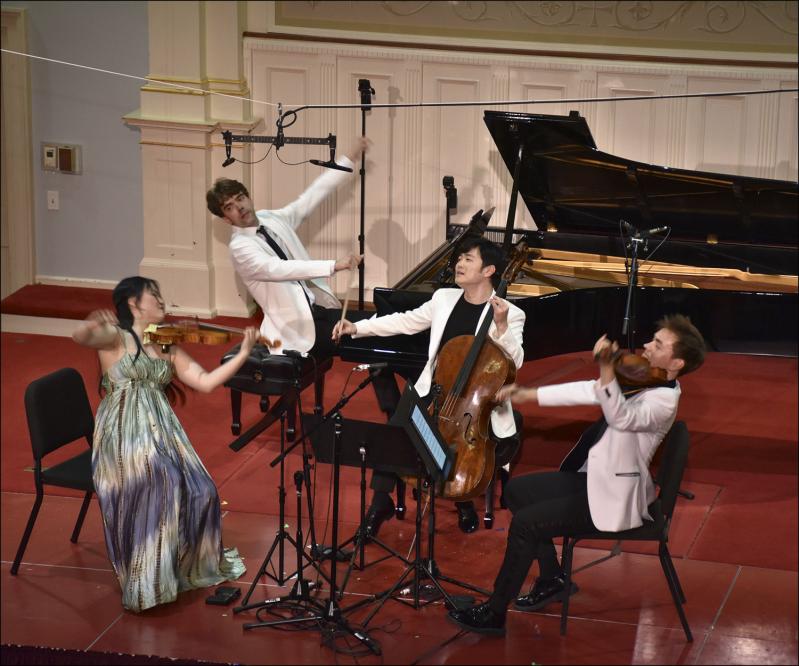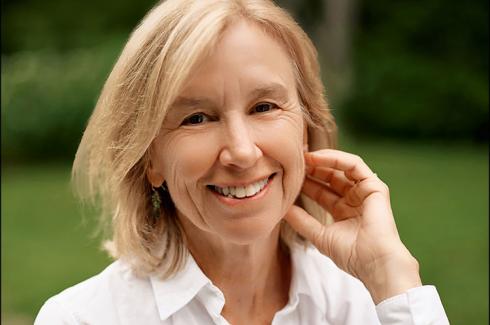The Bridgehampton Chamber Music Festival begins its summer series on Saturday with a theme of “In Between Lines: A Summer of Music Inspired by Literature.” Eleven concerts, running through Aug. 17, will offer many of the celebrated works of the classical canon, two premieres and a commission, and the added intrigue of established and newer repertoires connected in some way with words.
A few years ago, Marya Martin, the founder and artistic director of the festival, was on a jury for an international competition for instrumentalists of all kinds as well as singers. While singers typically portray the meaning of a text, “I started to think about pieces that instrumentalists play that are based on words, and all of these interplays between words and music, poetry and music,” she said last week. And so the idea for this year was born.
The first concert and wine reception has Joseph Parrish, a bass-baritone, returning to the Bridgehampton stage, with a program of American songs. Perhaps as an indication of the popularity of this series in its 42nd season, this limited-seating show is already sold out.
However, Mr. Parrish will return on Sunday with a set of songs by Schubert, widely regarded as unrivaled for matching melody to poetry. The main work on the program is his “Trout Quintet,” so nicknamed because it is based on an earlier art song of his by that title. On the surface, it is a story about fish, but its lighthearted message is to warn young women about young men. The concert is at 6 p.m. at the Bridgehampton Presbyterian Church, as are most of the programs.
Mr. Parrish is the only singer to appear this summer. As in other years, some 35 world-class instrumentalists from around the globe will perform, in ever-varied and colorful combinations of strings, winds, piano, harpsichord, and percussion.
Next Thursday, along with Bartók, Dohnanyi, and more Schubert, will be “The Old Men Admiring Themselves in the Water,” a touching reflection on a Yeats poem about growing older, by Robert Beaser, for flute and piano.
The annual benefit concert takes place at the Atlantic Golf Club in Bridgehampton on July 26. Anchored on the first movement of the Brahms Piano Quintet in F minor, the program also offers the engagingly titled “Metamorphosis II” by Philip Glass and “Abendlied” (“Evening Song”) by Schumann.
A delightful feature of this program is a piece for solo flute and a sound totally unexpected on the Bridgehampton Chamber Music stage — a music box! Douglas Mews, a former professor of Ms. Martin’s, gave this piece to her when she was leaving her native New Zealand. It is based on a Maori folk song, “Tangi Pohutu,” referring to “the land of the hot springs,” a particular place where there is one of the thinnest earth surfaces in the world. At the end of the solo flute piece, the music box is opened and it delicately plays the folk song. For those not going to the benefit concert, Ms. Martin said, “I think I’m going to do it again next year on the main program.”
On the subject of music and words, there is a provocative quote from Felix Mendelssohn, which turns the tables on what one might first think: “People usually complain that music is so ambiguous, and what they are supposed to think when they hear it is so unclear, while words are understood by everyone. But for me it is exactly the opposite — what the music I love expresses to me are thoughts not too indefinite for words, but rather too definite.”
A selection of Mendelssohn’s “Songs Without Words” for piano opens the July 27 program, played by Albert Cano Smit. As the series was being planned, the wildfires were raging in Los Angeles, bringing to mind a piece by Michael Torke titled “After the Forest Fire,” for the unusual combination of flute, cello, and marimba. This will be heard, along with another piece with marimba and cello, “Mariel” by Osvaldo Golijov, an Argentine composer, capturing the poignant moments after learning of the death of a friend.
On July 31, together with Mozart, Milhaud, and Beethoven, will be “Not the Stillness” by John Metcalf, referring to a quote from T.S. Eliot, “Not the stillness of the violin, while the note lasts. . . .” It is for clarinet, violin, cello, and piano, another rather infrequent scoring, although it is the same as Olivier Messiaen’s landmark “Quartet for the End of Time.”
“I have tried to recreate, in my own terms, the same rapt stillness of the slow sections of the ‘Quatuor Pour la Fin du Temps,’ “ Mr. Metcalf has said.
Venturing into the newer world of electronics, Ms. Martin will perform a work that she commissioned a number of years ago, “I Will Not Be Sad in This World,” based on an Armenian troubadour song, for live alto flute and prerecorded audio.
Eve Beglarian, who composed the piece, explained last week that she made several overlaid tracks of her own voice, and “used this processing that starts out quite light . . . and then gradually, through the course of the piece, the electronics transform, or basically take out frequencies so that it becomes more and more gossamer, more and more insubstantial.” Whereas the recording is set, “the flute playing is really meant to be quite free, and each flute player is free to ornament to their own taste.”
“A piece for me that is a standout this summer is the commission by Lowell Liebermann,” Ms. Martin said, his Chamber Concerto No. 3 for flute, clarinet, violin, cello, and piano, to be premiered on Aug. 3. It is dedicated to the memory of Neil Hirsch, who was the husband of a devoted audience member. At about 22 minutes long, it is a major work, and it will be showcased between Schubert and Mozart.
On Aug. 7, a program called “Friendly Rivals: Telemann and Bach” will spotlight Telemann’s “Gulliver’s Travels” for two violins.
“Lament” for horn and piano, by Huw Watkins, is in memory of a most highly regarded horn player about 40 years ago. On Aug. 10 the solo part will be played by David Byrd-Marrow, an associate professor of horn at Oberlin and graduate of Juilliard and Stony Brook University, appearing with the series for the first time. The major opus will be Brahms’s Piano Quartet No. 3 in C minor, nicknamed “Werther” after the main character in a highly emotional Goethe novel.
Perennial delights will fill the large tent at the sculpture garden of Channing Daughters Winery in Bridgehampton for the annual Wm. Brian Little Concert on Aug. 15: selections from Vivaldi’s “Four Seasons” and Piazzolla’s “Four Seasons of Buenos Aires.” While these are highly celebrated, it may be less well known that Vivaldi wrote sonnets to go with the music. This concert has wine and hors d’oeuvres at 6 p.m. and the concert at 7.
Playing will be Julian Rhee, a violinist, who is new to the festival. He was a prize winner in the 2024 Queen Elisabeth Competition for violinists, and a silver medalist at the quadrennial International Violin Competition of Indianapolis in 2022.
For the season finale on Aug. 17 there will be another premiere, written by Paul Moravec, who has been featured in Bridgehampton before — a new “Meditation” for flute and piano that has been composed for Ms. Martin. Nico Muhly, an American composer who has twice been commissioned by the Metropolitan Opera, will be heard in his “Short Variation on ‘Mulier, ecce filius tuus,’ “ based on a movement from Haydn’s “Seven Last Words of Christ.” And the season culminates with a grand cornerstone of chamber repertoire, Schumann’s Piano Quintet in E flat major.
Most tickets are $75 and $50, $10 for students, and $175 for the evening at Channing, at 631-537-6368. More information is at bcmf.org.




